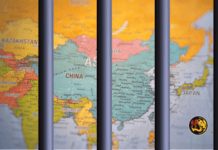By Stefan J. Bos, BosNewsLife Chief International Correspondent with reporting from Iraq

MOSUL, IRAQ (BosNewsLife)– Iraq’s Shi’ite Prime Minister Nouri al-Maliki made a strong showing in Saturday’s provincial elections, but it was unclear whether life would improve for the country’s embattled Christian minority.
Officials said Sunday, February 1, that early projections showed candidates backed by Maliki performed well in southern Iraq’s Shi’ite heartland.
However Christians in northern Iraq, still reeling from a string of murders last fall, saw themselves in the middle of a power struggle between Kurds and Sunni Arabs.
Iraqi Christians have faced years of violence and intimidation from al-Qaida in Iraq and other Islamic extremist groups, churches and advocacy groups say. Especially in the northern city of Mosul and surrounding areas, Christians said they fear Kurds want to incorporate parts of the area into their semi-autonomous region in northern Iraq.
Kurds were expected to lose the dominance they enjoyed here in Nineveh province since Sunni Arabs boycotted the last provincial election in 2005. Officials said Sunday, February 1, that Sunni participation boosted voter turnout in Nineveh to 60 percent and in Anbar province to 40 percent.
ONE SEAT
Christians were expected to get at least one out of 37 council seats in the province, thanks to a minority quota.
However there has been concern among churches and advocacy group that this may not be enough to protect the rights of Christians and other religious minorities in this predominantly Muslim nation. And, Christians remain divided over whether to back Kurds or Sunni Arabs in their struggle for domination in Nineveh and its capital city of Mosul.
Fewer than three percent of Iraq’s 26 million people are Christians, many concentrated in Nineveh province. Raad Shaya, a 30-year-old Christian teacher who lives in the outlying town of Batnaya, told The Associated Press agency that Christians face intimidation from both sides.
Islamic extremists recently threatened him and several Christian colleagues by placing a warning inside the minibus they used to commute to work, he said. “The Kurds are controlling the Christians right now. There’s also the threat from outside Islamic political parties.”
Thousands fled the region since the fall, although many have come back when the government ordered additional security forces to protect minority Christians. However believers remain concerned about new attacks against them in a region where several Christian workers and church leaders have been killed.
HOPEFUL
Yet, the absence of major violence during the elections this weekend was seen by Western leaders as as a hopeful sign for both Christians and Muslims living in Iraq. Iraqi officials said fewer than 200 Iraqis were killed in violence in January – the lowest monthly toll since the Iraq war began in 2003.
Four U.S. soldiers were killed by hostile fire in Iraq during January, while 12 others died in non-combat incidents. Election observers cautioned however that the lower-than-predicted turnout for the provincial elections underscored that remain and shows Iraqis’ growing disillusionment with politicians who have made little progress in improving basic municipal services and minority rights.
Some Iraqis also complained that it was too hard to reach polling stations because of security restrictions on vehicle traffic. Others could not cast a vote because their names were not included on registration lists, news reports said.
News reports quoted Iraqi Kurdish official Fuad Hussain as saying about 70,000 ethnic Kurds in the provinces of Nineveh and Diyala were unfairly denied the right to vote. He said Kurds were left out of voter lists despite having handed their food ration cards to Iraqi authorities as part of the voter registration process.
Iraqi government spokesman Ali al-Dabbagh told reporters that the 51 percent turnout was “in line with international figures” for local and provincial polls. Baghdad’s turnout was reportedly about 40 percent.
BRAVE
Despite controversies, United States President Barack Obama described Sunday’s ballot as important step forward as Iraqis continue taking responsibility for their future.
British Prime Minister Gordon Brown said Iraqis showed their commitment to democracy by, in his words, “braving the threat of intimidation” to vote.
Yet, with many people staying at home and violence continuing in several areas Prime Minister Maliki faces difficult challenges in the coming months.
Observers said that the strong showing by Maliki’s allies would give him a boost against more orthodox religious Shi’ite parties in national elections due later this year.








